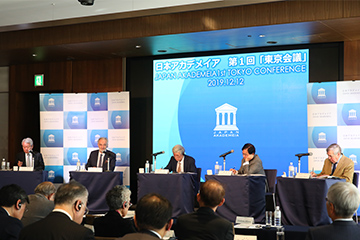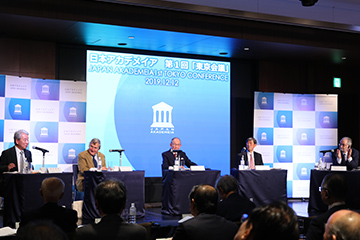Japan Akademeia
Japan Productivity Center
International Conference
We rebuild the global intellectual network and hold international conferences to widely convey a sense of urgency. These efforts aim to address global challenges such as the world's governance systems and the future of democracy.
(Invited speakers)
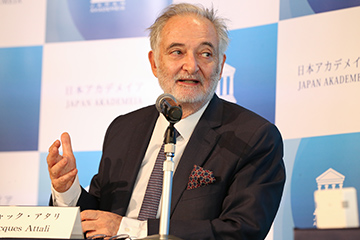
Jacques Attali
Economic and social theorist
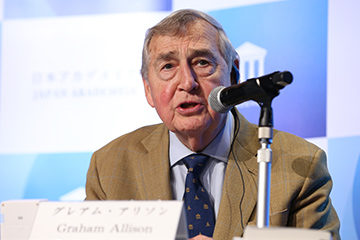
Graham Allison
Political scientist
Professor, Harvard University
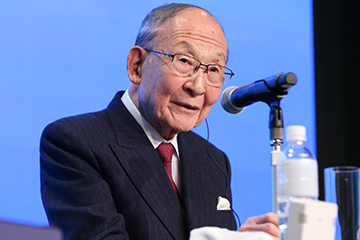
Yuzaburo Mogi
Joint Chancellor, Japan Akademeia
Honorary CEO and Chairman of the Board, Kikkoman Corporation
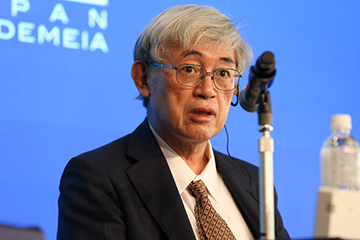
Takeshi Sasaki
Joint Chancellor, Japan Akademeia
Former President, The University of Tokyo
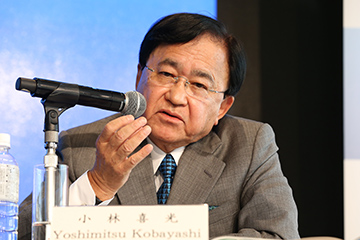
Yoshimitsu Kobayashi
Chairman, Mitsubishi Chemical Holdings
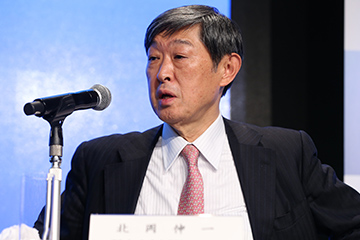
Shinichi Kitaoka
President, Japan International
Cooperation Agency
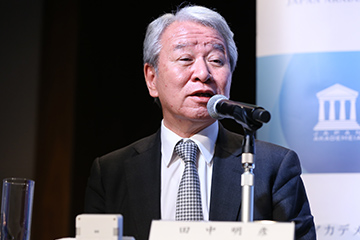
Akihiko Tanaka
President, National Graduate Institute for Policy Studies
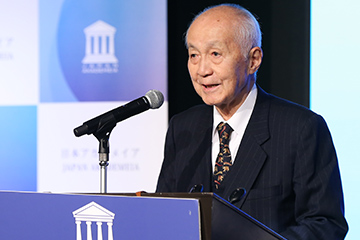
Shinji Fukukawa
Chairperson, First Tokyo Conference
Executive Committee
Senior Advisor, Global Industrial and Social Progress Research Institute
Chancellor, Toyo University
In recent years, the world has seen a tendency of leading countries to prioritize domestic interests, thereby rejecting international cooperation systems and weakening the functions of international organizations.
These trends are raising grave concerns about the resulting decline of globalism, which could fuel confrontation and mistrust in the international community.
At the same time, information and communication technologies, such as artificial intelligence and big data, are advancing at a remarkable pace, with economic structures expected to undergo a major transformation.
The world's attention is now focused on the future of global governance.
With these issues in mind, Japan Akademeia held the First Tokyo Conference with the theme "Changes in the Global Power Structure and the Future of Global Governance," on the occasion of the 30th anniversary of the fall of the Berlin Wall that marked the end of the Cold War.
We invited Dr. Jacques Attali, an economic and social theorist from France, and Dr. Graham Allison, a political scientist and professor at Harvard University from the United States.
During the conference, the future of global governance and Japan's role were discussed, and concluding with the Tokyo Declaration.
The First Tokyo Conference
"Changes in the Global Power Structure and the Future of Global Governance"
The World and Japan, Thirty Years after the End og the Cold War
Date: December 12, 2019
Time: 1:00(p.m.)- 5:00(p.m.)
Place: Coriander (2nd floor), Grand Hyatt Tokyo
| 1:00 | Greetings by the Organizer Yuzaburo Mogi Joint Chancellor, Japan Akademeia Honorary CEO and Chairman of the Board, Kikkoman Corporation |
|
|---|---|---|
| 1:10 |
Session I: The Crisis of the Global Governance Structure
|
|
| 3:15 |
Session II: Prospects and Program for the Future of Global Political and Economic Systems
|
|
| 4:45 |
Conclusion of Sessions |
|
| 4:50 |
Closing Remarks and Announcement of the Tokyo Declaration |
|
| 5:00 |
Closing |
|
Mr. Yuzaburo Mogi, Joint Chancellor of Japan Akademeia, expressed his thoughts on the Tokyo Conference in his opening greetings.
He described the world as entering a time when people must share a sense of crisis and an awareness of issues about the mechanism of global governance, the future of the market economy and democracy, and their sustainability, and raise their voices for the sake of future generations.
In Session I, titled "The Crisis of the Global Governance Structure," Dr. Jacques Attali first noted that the international order in the past existed because of strong leaders, but the United States and China have now become fragile. He then indicated that no other states are likely to succeed as world leaders in the future. Dr. Attali also warned that states could be overwhelmed by markets and businesses, with conflicts occurring frequently because no organizations will be willing or able to address global challenges. He said, "We are entering a very dangerous zone." In response to Dr. Attali, Dr. Takeshi Sasaki, Joint Chancellor of Japan Akademeia, pointed out the importance of thinking about schemes and strategies in view of the discordant relationship between globalism and democracy.
Dr. Yoshimitsu Kobayashi, Chairman of Mitsubishi Chemical Holdings, described "Reiwa," the name of Japan's current imperial era. He explained that Reiwa can be interpreted as "beautiful harmony," but also citing "command" or "code" as another meaning of the Chinese character "rei," Dr. Kobayashi said the time has come for Japan to take the initiative in "harmonizing global codes." He then asked how the West sees Japan's role.
Dr. Graham Allison pointed out that Japan has successfully assumed a leadership role in the Comprehensive and Progressive Agreement for Trans-Pacific Partnership (CPTPP), despite the country's past tendency to play a modest role as a bystander. He urged Japan to play a more active role, particularly in addressing the growing threat of North Korea's nuclear program. He said, "Japan should ask what it can do."
Session II addressed the theme of "Prospects and Program for the Future of Global Political and Economic Systems. Dr. Allison suggested that while confrontation and competition between the United States and China, or the ruling and rising powers, is inevitable, it is possible to avoid what he describes as the "Thucydides Trap" and avoid war by practicing the 5Cs - caution, communication, constraints, compromise, and cooperation - as lessons learned from the Cold War.
Mr. Mogi predicted the continuation of US-China confrontation for many years to come, and commented on the role of Japan. He said Japan should clearly demonstrate to China the value of the market economy, with its businesses serving as the key actors, and that Japan's efforts will eventually contribute to peace and stability of the world.
Dr. Attali expressed hope that Japan will act as an honest broker who helps the US and China conduct dialogues full of trust, which he said would benefit the world as well.
On the other hand, Dr. Shinichi Kitaoka, President of the Japan International Cooperation Agency, questioned whether Japan was able to change and improve itself during the thirty years of the previous Heisei era, which began in 1989. He believes it is difficult for present-day Japan to adopt a leadership role, and insisted that Japan take further steps, including political reforms, to strengthen its own power. As for democracy, Dr. Allison stated it is extremely difficult because democracy does not work naturally and requires constant efforts.
At the end of the two sessions, Dr. Akihiko Tanaka, the moderator and President of the National Graduate Institute for Policy Studies, summarized the conference. He said people today are confronted with unprecedented challenges and must consider what can be done to prevent another tragedy of history from repeating itself. He added that people are facing the conundrum of how democratic nations can improve their own democratic systems and manage the relationship between democracy and markets.
Lastly, Mr. Shinji Fukukawa, Chairperson of the First Tokyo Conference Executive Committee, announced the Tokyo Declaration.
Following the Declaration, Japan Akademeia will work to establish a network mechanism for bringing global wisdom together and enhancing intellectual progress in order to develop strategies for resolving such global issues as reviving and advancing globalism, improving the democratic governance capacity, and creating management systems related to demographics, resources, the environment, and information-related technologies.
Japan Akademeia will discuss the details in the first half of 2020 and draw up and implement an action plan during the second half of the year.

